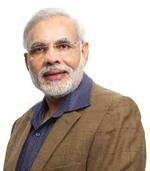Novartis ($NVS) has lashed out at India's Cipla in court for rolling out a deeply discounted generic of its COPD drug Onbrez without waiting for the courts to rule whether its patents are valid. It has sued Cipla for infringing its patents on Onbrez, known as Arcapta in the U.S.
The Indian drugmaker, known for its disdain for Western drug companies' approach to patents and prices, in October asked India's high court to invalidate 5 patents for the drug, arguing that Novartis was not meeting the local need. But Cipla didn't wait for a ruling; it went ahead and launched its version of the respiratory drug, priced at about a fifth of the cost of the branded version.
Novartis, in confirming the lawsuit to Reuters, said Cipla's suggestion that there was not enough supply was wrong, that its attacks on its patents unfounded and its launch of the copy improper. "Cipla did not use any of the processes provided for in the Indian legal system to either challenge validity of the patents, establish non-infringement or to seek a license for these patents," a Novartis spokeswoman told the news service.
The once-daily long-acting beta2-agonist was first approved in Europe in 2009 and two years later in the U.S. It is not a huge seller for the Swiss drugmaker, but is a growing one. It generated about $192 million in sales worldwide in 2013, up 47%, according to Novartis' annual report.
Western drugmakers have been vigorously fighting in court to protect patents in India and Novartis has been one of the combatants in those battles. Last year, the country's Supreme Court rejected Novartis' bid for an Indian patent on its cancer drug, Glivec, a rejection which left open the door to generic competition. Cipla is in another IP skirmish with Roche ($RHHBY) over patents for its lung cancer drug, Tarceva. The case recently failed in mediation and is back in court.
 |
| Narendra Modi |
U.S. drugmakers and industry groups have bitterly complained to political leaders about India's populist approach to IP and the U.S. has placed the country on its Priority Watch List--a distinction for those countries whose IP-protection practices Washington believes bear close monitoring. Drugmakers are hoping that India's new business-oriented Prime Minister Narendra Modi will alter the government's approach. In a move some saw as encouraging, a government agency in October delayed for further review a decision on whether to grant a compulsory license for Bristol-Myers Squibb's ($BMY) leukemia drug Sprycel. Modi made his first trip to the U.S. in October where the IP issue was discussed, leading to an agreement between the two countries to hold regular meetings on the issue.
- read the Reuters story
Special Report: Top 10 Best-selling Cancer Drugs - Tarceva - $564.2 million